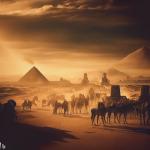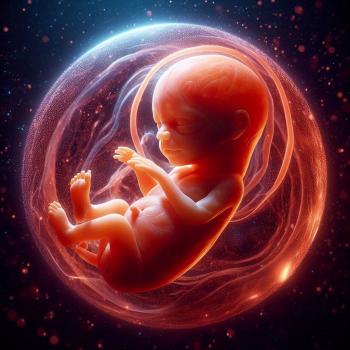
An often-forgotten Biblical fact is that Abraham remarried and had children with another wife, after the death of Sarah. He married Keturah and she gave him sons, who would form their own nations. Thus, she became Keturah the mother of nations.
Keturah: Mother of Nations
Keturah and Abraham had six sons together. Their names were: Zimran, Jokshan, Medan, Midian, Ishbak, and Shuah. The story, in Genesis 25, tells us that Jokshan had two children. Their names were Sheba and Dedan. It is through these grandchildren that she becomes Keturah, the mother of nations. Dedan’s descendants became the Ashurites, the Letushites, and the Leummites.
The Letushites and Leummites seem to have settled in Arabia. Other than that little is known about them. However, the Ashurites were known to be a tribe in Northern Israel. We know that Ishbosheth, the son of Saul, ruled over them at some point. It has been speculated that they could have been Assyria or Arabia, but this doesn’t make sense. Those countries were known to be free and self-governing, at the time of Ishbosheth’s rule. Therefore, it seems most likely, they were simply known as the tribe of Asher.
Although The Torah only mentions the descendants of Dedan becoming nations, The Midrash assures us that all of Keturah’s sons became the heads of nations. G-d is not lax in keeping his promises. He promised Abraham that all of his children would be made into great nations. G-d kept his word according to The Midrash.
Hagar? Is that You?
Speaking of The Midrash, it is important to note that it does offer two theories as to the identity of Keturah. The first, which we have been exploring, is that she is another wife of Abraham. The other theory offered by The Midrash is that this is Hagar, whom Abraham finds and marries after Sarah’s death. Being a feminist, I like the idea that after such a horrific tale Hagar became a legitimate wife to Abraham. Sadly though, there isn’t much in The Torah to support this theory, and it requires jumping through some theological hoops.
The Theological Hoops
In the text, she is recorded as “another wife.” Her name is not Hagar, and there is no reference to her children being the full brothers of Ishmael. The proponents of this idea believe that when Isac went to Be’er-la-hai-ro’i” he brought back Hagar. The Torah itself does not state this. They argue the name change is to show Hagar’s good nature. Keturah: Midrash and Aggadah explains:
“The name Keturah lends itself to a number of Rabbinic interpretations. She was perfumed (mekuteret) with commandments and good deeds (Gen. Rabbah 61:4); she was (through her good deeds) more savory (mekuteret) than all manner of spices (Pirkei de-Rabbi Eliezer [ed. Higger], chap. 29); her deeds were as fine as incense (ketoret—Tanhuma, Hayyei Sarah 8). An additional explanation gives this word the meaning of binding or sealing (keshurah). When a person secures his valuables with his seal, they are still shut when he opens his treasury. Thus, even though Abraham sent Hagar forth and she wandered in the wilderness, when he brought her back she remained chaste and no other man had known her, for which she was known as Keturah (Gen. Rabbah 61:4).”
Proponents of this theory also claim the word concubines is misspelled purposely in Genesis 25:6. Again, all of this requires us to jump through a lot of theological hoops, not supported by The Torah itself. Sadly, I do not believe Keturah is Hagar.
The Lessons of Keturah
That being said, like Hagar, Keturah was seen as a virtuous woman, worthy of Abraham. This too comes from The Midrash. Also, like Hagar, Keturah became known as a mother of nations. Her story assures us that G-d always keeps his promises. Though, Abraham sent her sons and Ishmael away with only gifts and gave all he had to Issac, her sons still became great nations. This story also reminds us that Abraham’s descendants are more numerous than we often think. In the modern world, we usually only credit Jews and Muslims as having descended from Abraham. However, here we are reminded to remember our Arabian cousins, some of whom may not be Muslim, as well. Truly, the seed of Abraham has spread across the whole of The Middle East. Let us remember and honor Keturah, mother of nations.
Please stay tuned for the continuation of the Women in The Bible series. Click here and subscribe to the newsletter to be alerted when new articles are published.


















